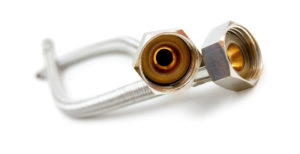 When most people think about preventative maintenance for a hydraulic system, filter changes and checking the oil levels are usually the first things that come to mind. Unfortunately, those can also be the only things that come to mind.
When most people think about preventative maintenance for a hydraulic system, filter changes and checking the oil levels are usually the first things that come to mind. Unfortunately, those can also be the only things that come to mind.
There’s much more to hydraulic system maintenance than simply changing the filters. When a system fails, there isn’t usually a lot of material to rely on for troubleshooting. However, these preventative checks could help your system run better and longer.
Hose Condition
Leakage is one of the biggest problems that plagues hydraulic systems. Checking to make sure all hoses are assembled properly and in good condition could save you a lot of frustration in the long run. Hoses that show wear on the outer jackets or signs of any leakage should be replaced as soon as possible. No matter what, your hoses should be regularly inspected for excessive wear or any leakage.
Hose Length
In addition to hose condition, hose length is incredibly important. If at all possible, hoses should not exceed lengths of four to six feet. Excessive length will increase the possibility of hoses rubbing up against other hoses and creating wear where there shouldn’t be. In addition, if a hose rubs against a catwalk or beam too frequently, it could lead to premature hose failure.
Hose Routing
Wherever possible, hoses should be routed in a manner that prevents them from tangling or rubbing against one another. If it’s not possible, protective sleeves should be used to prevent excess friction and hose failure. Plastic cable ties or large hose clamps can be used to hold hoses in place.
Proper Clamping
Hose clamps are available in multiple materials and sizes, but you should ensure that you’re using the right types of hose clamps for your hydraulic system. Clamps should also be regularly inspected for loose mounting bolts. In addition, use small or large hose clamps where appropriate, and ensure that they are all spaced properly. Adjustable hose clamps are ideal.
Just like performing preventative maintenance on a car or other piece of equipment, hydraulic maintenance is essential to successful operation. These four checks should always be performed in a regular maintenance schedule.

